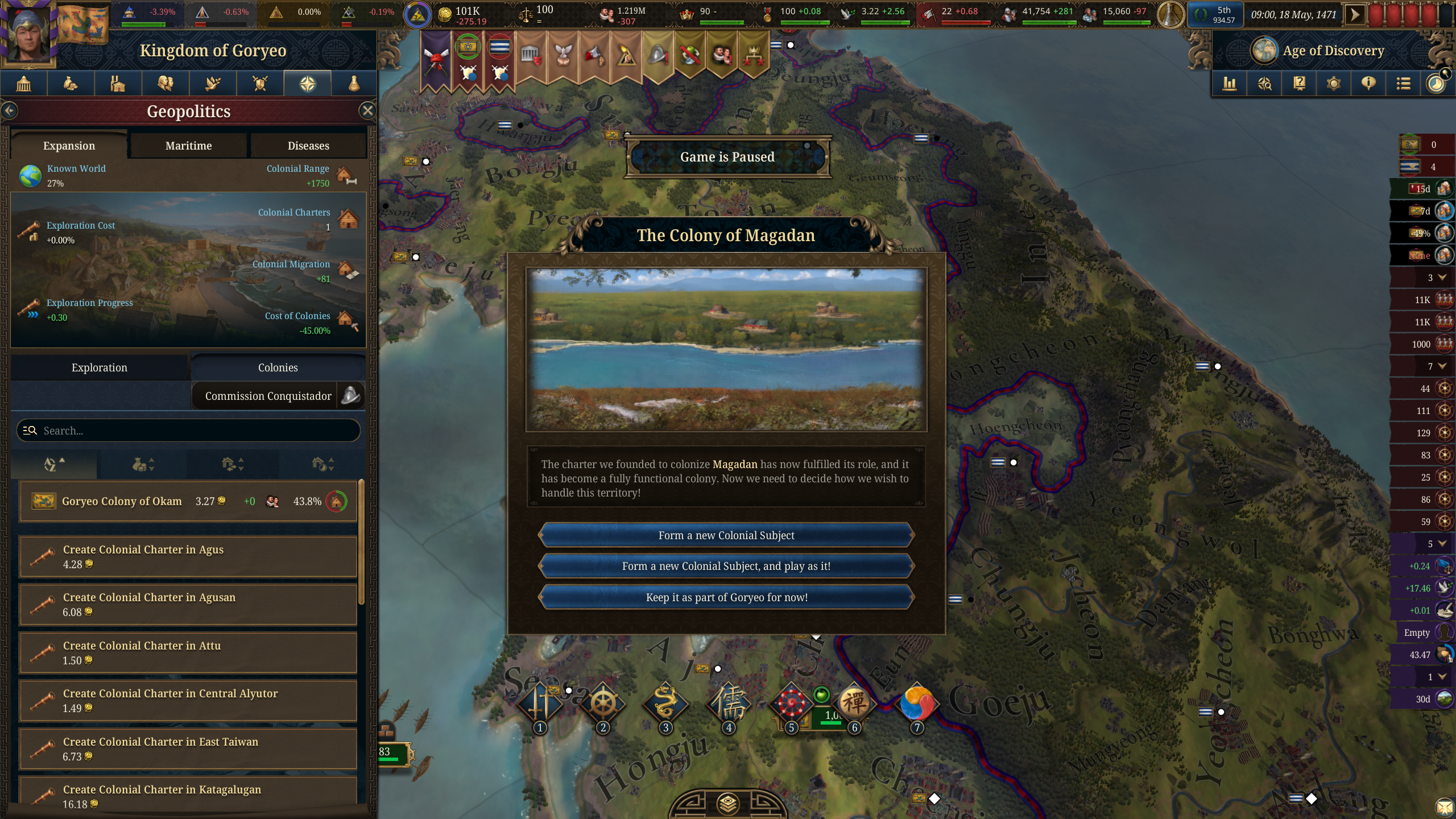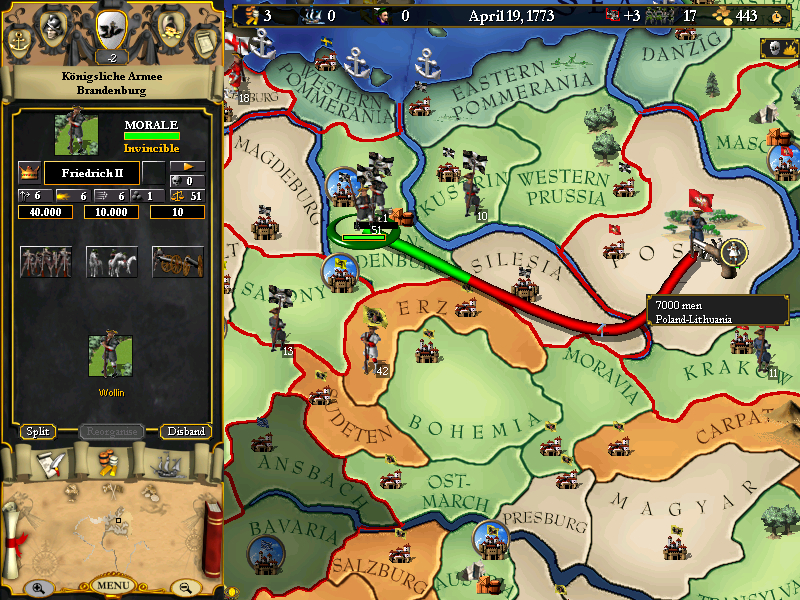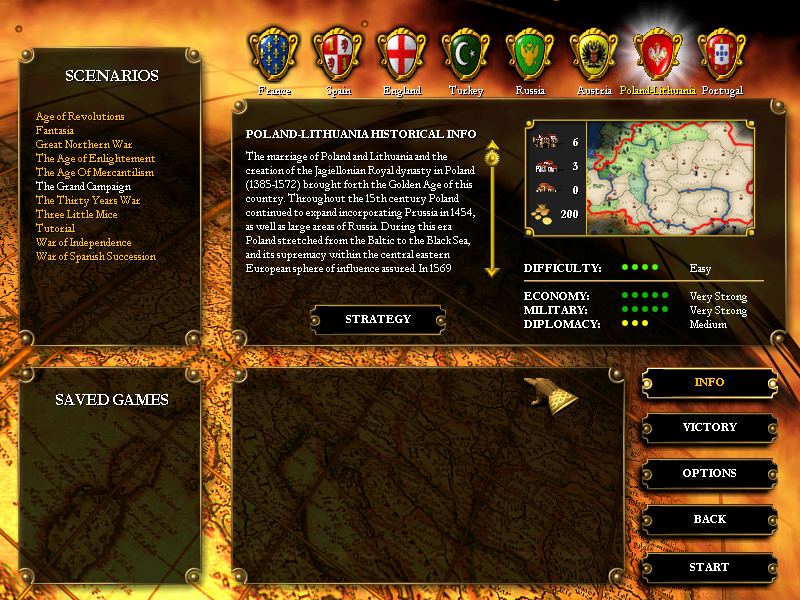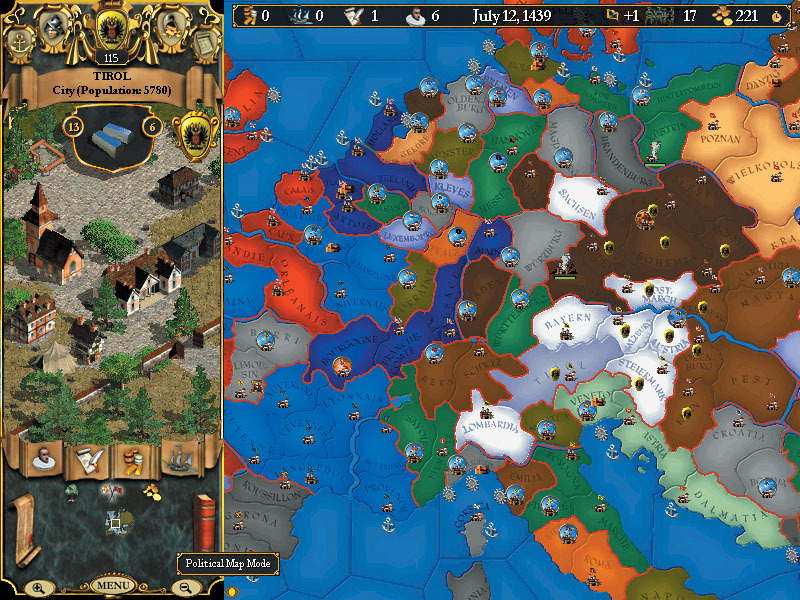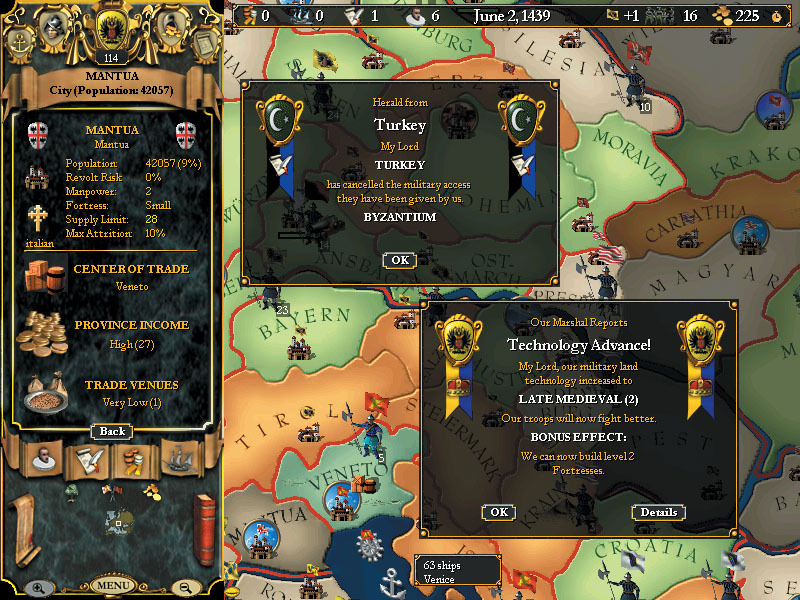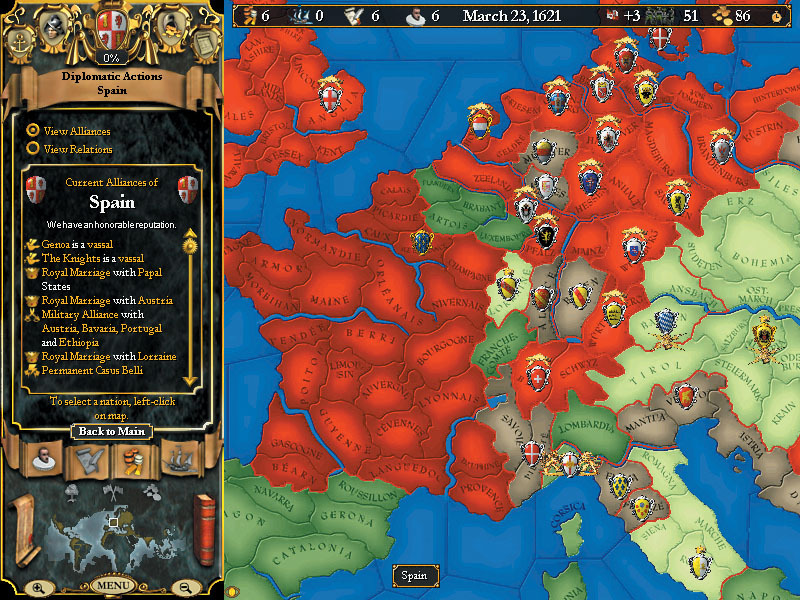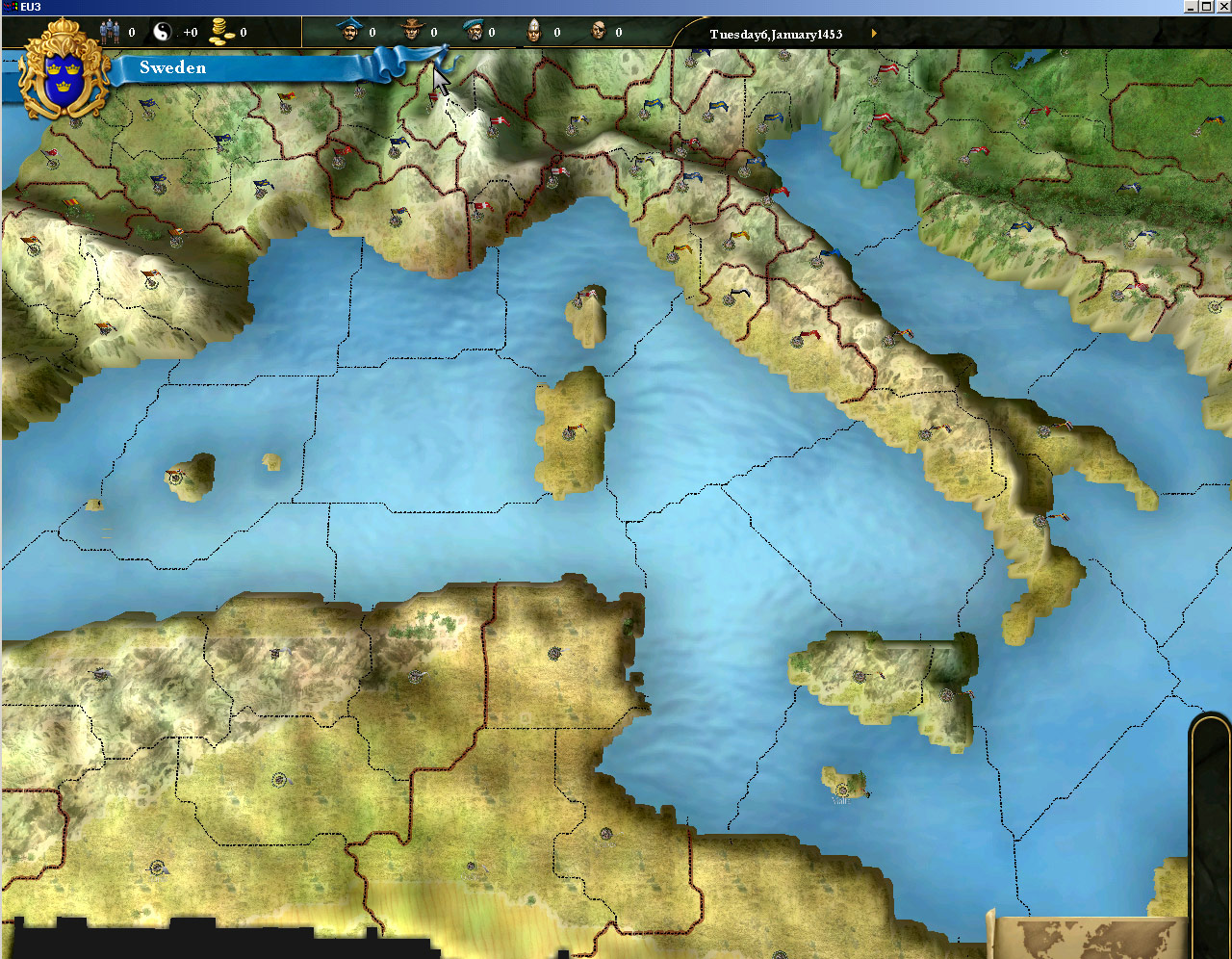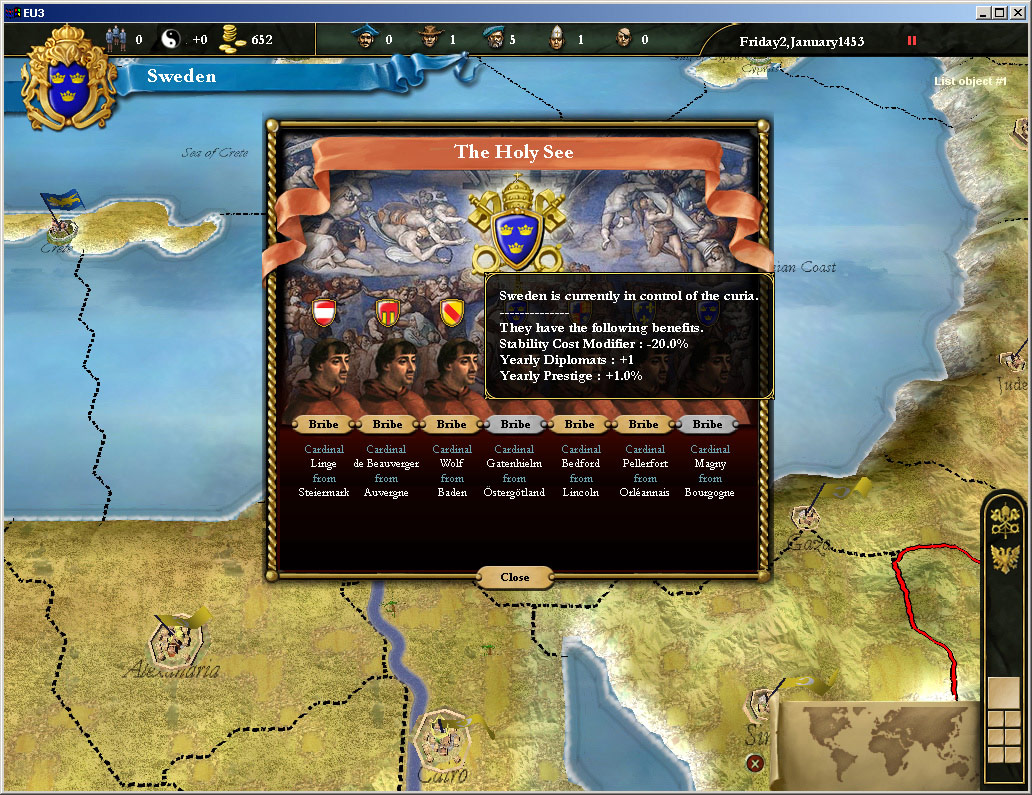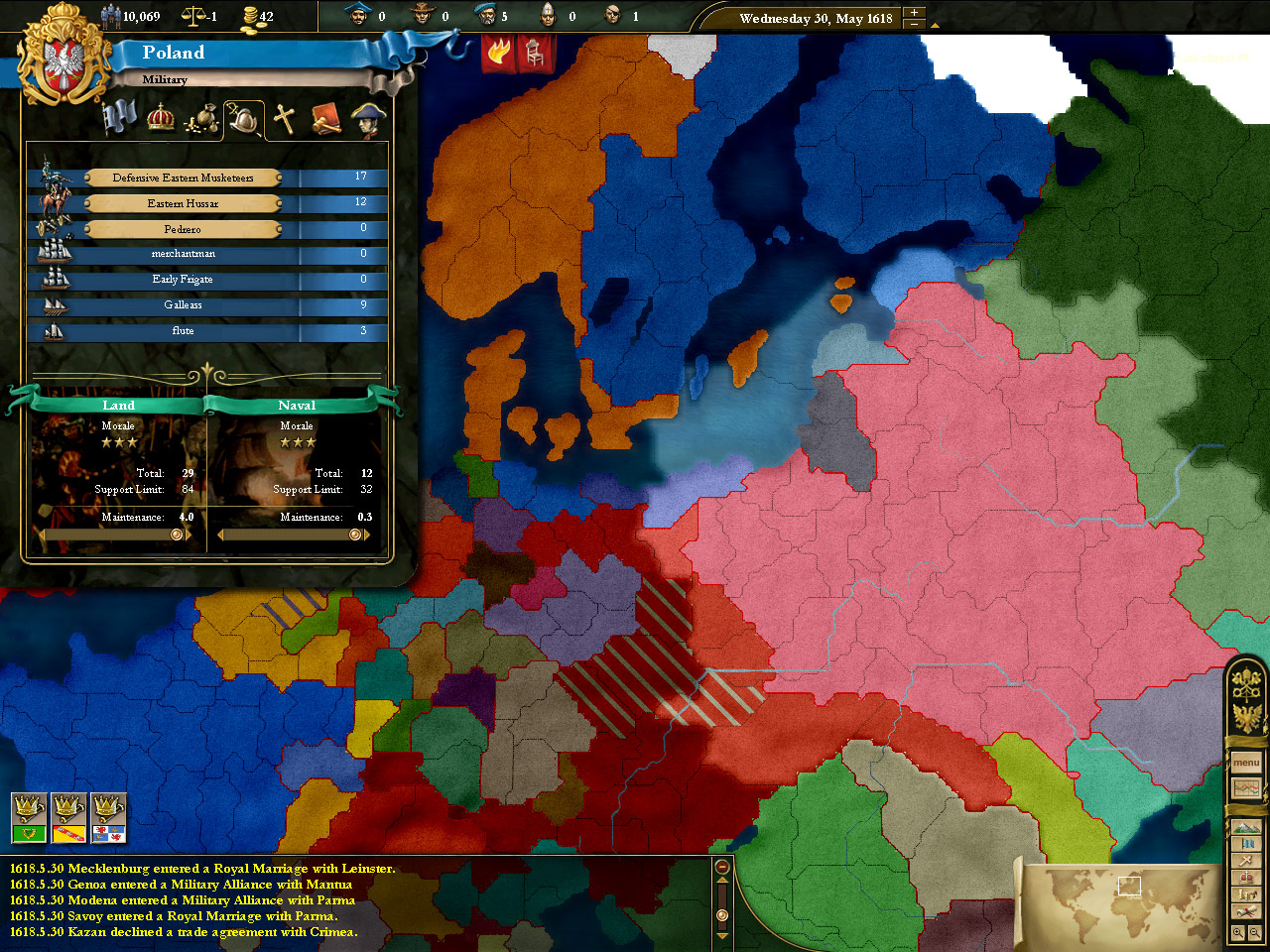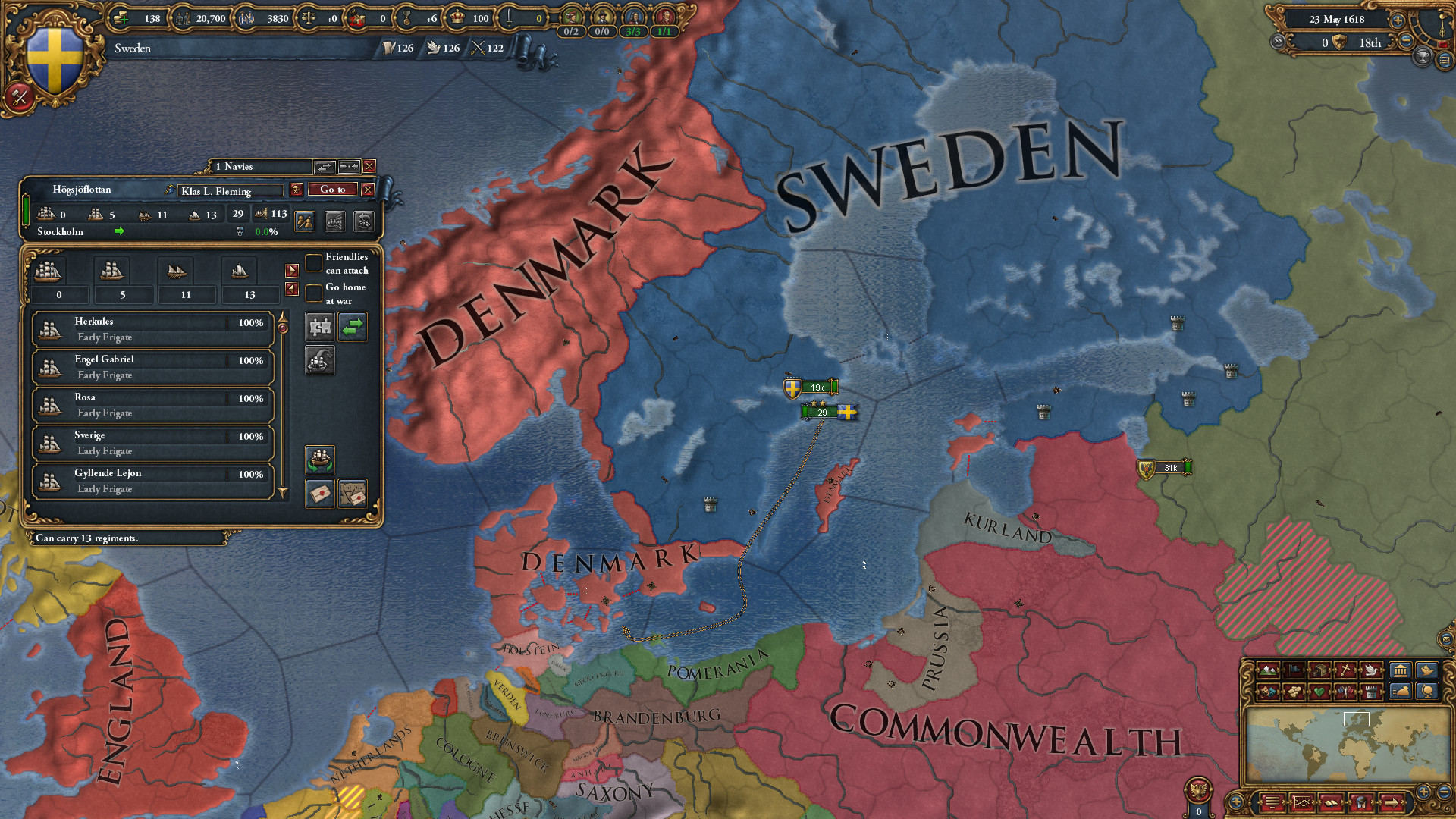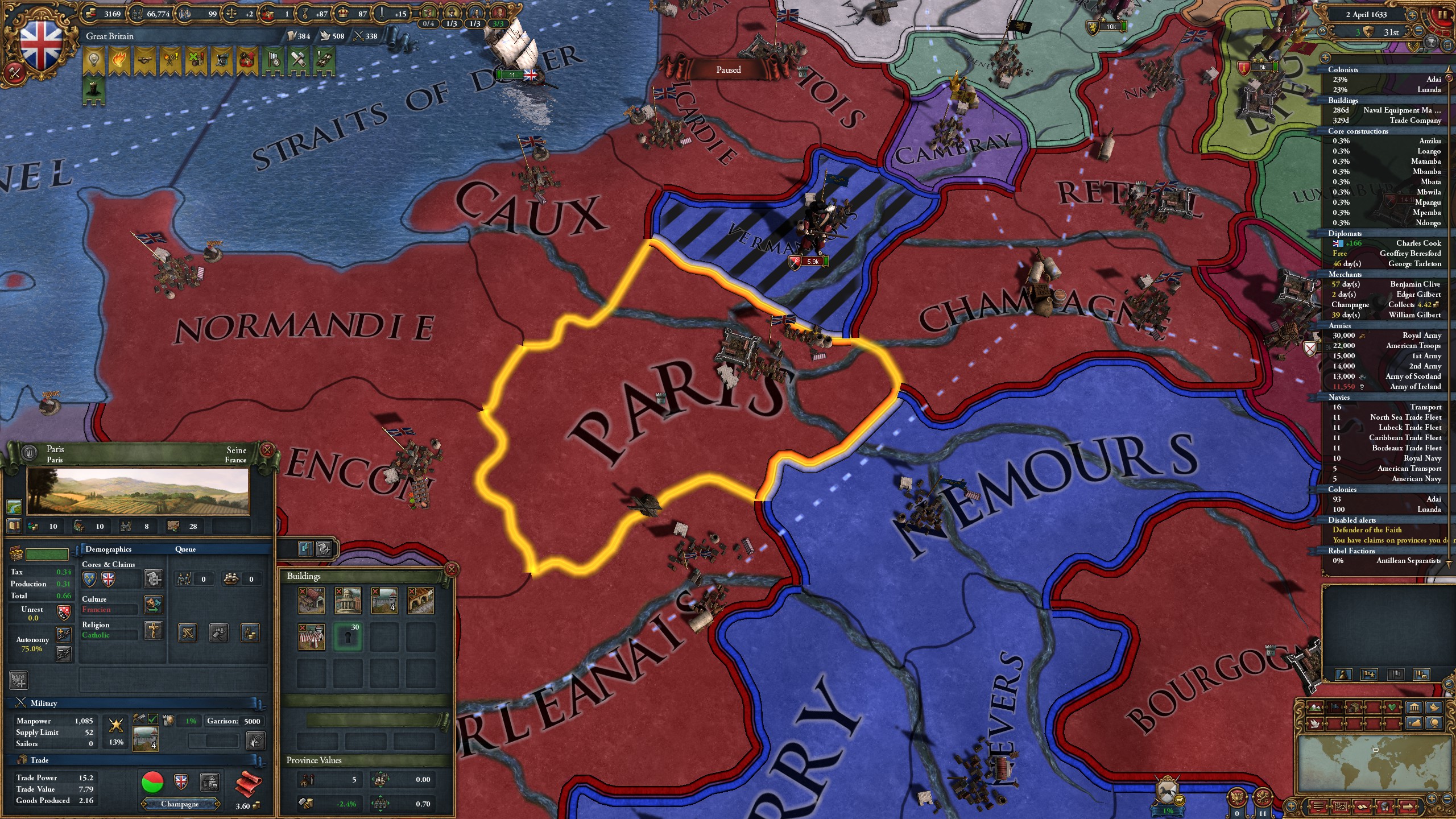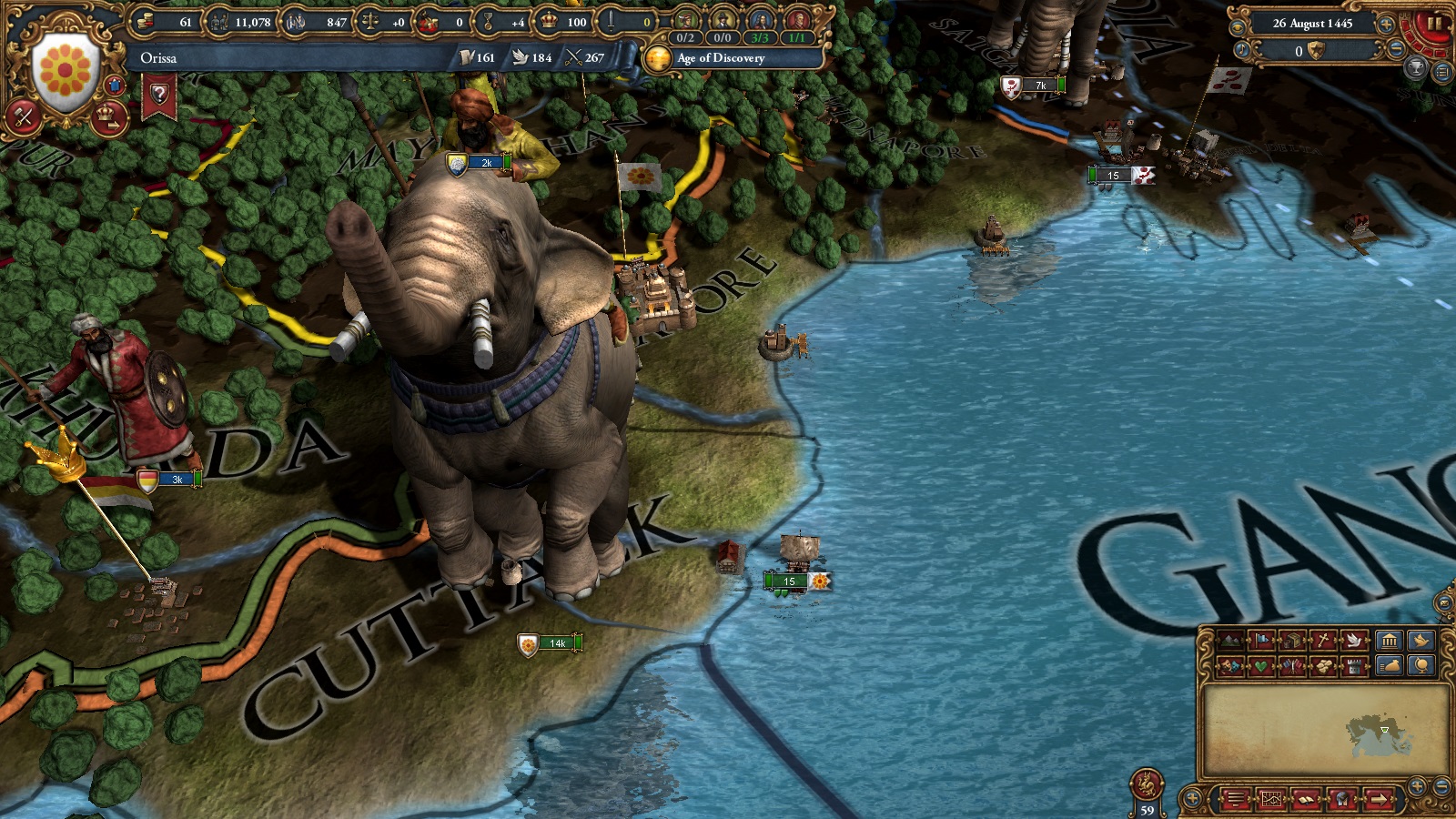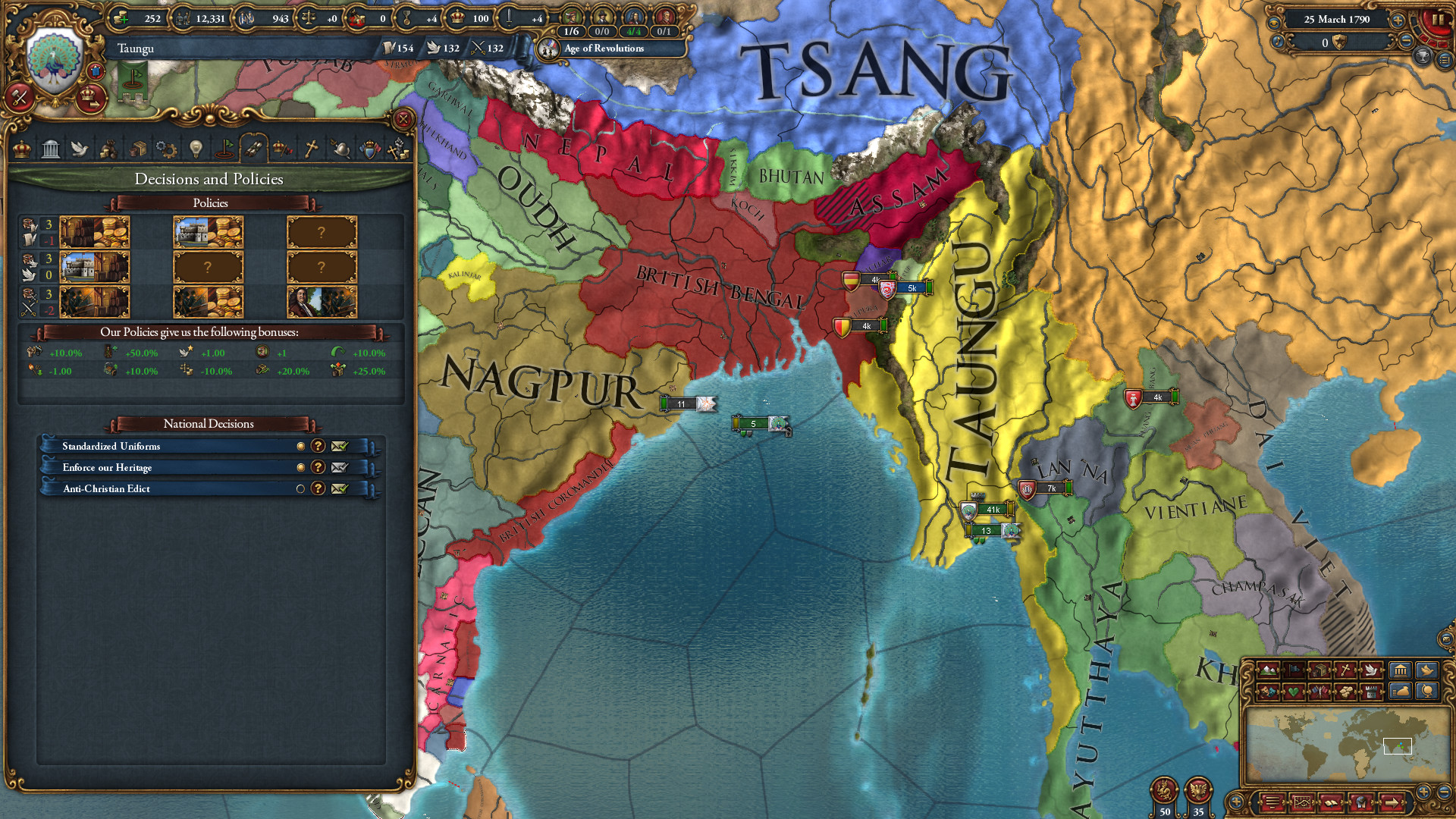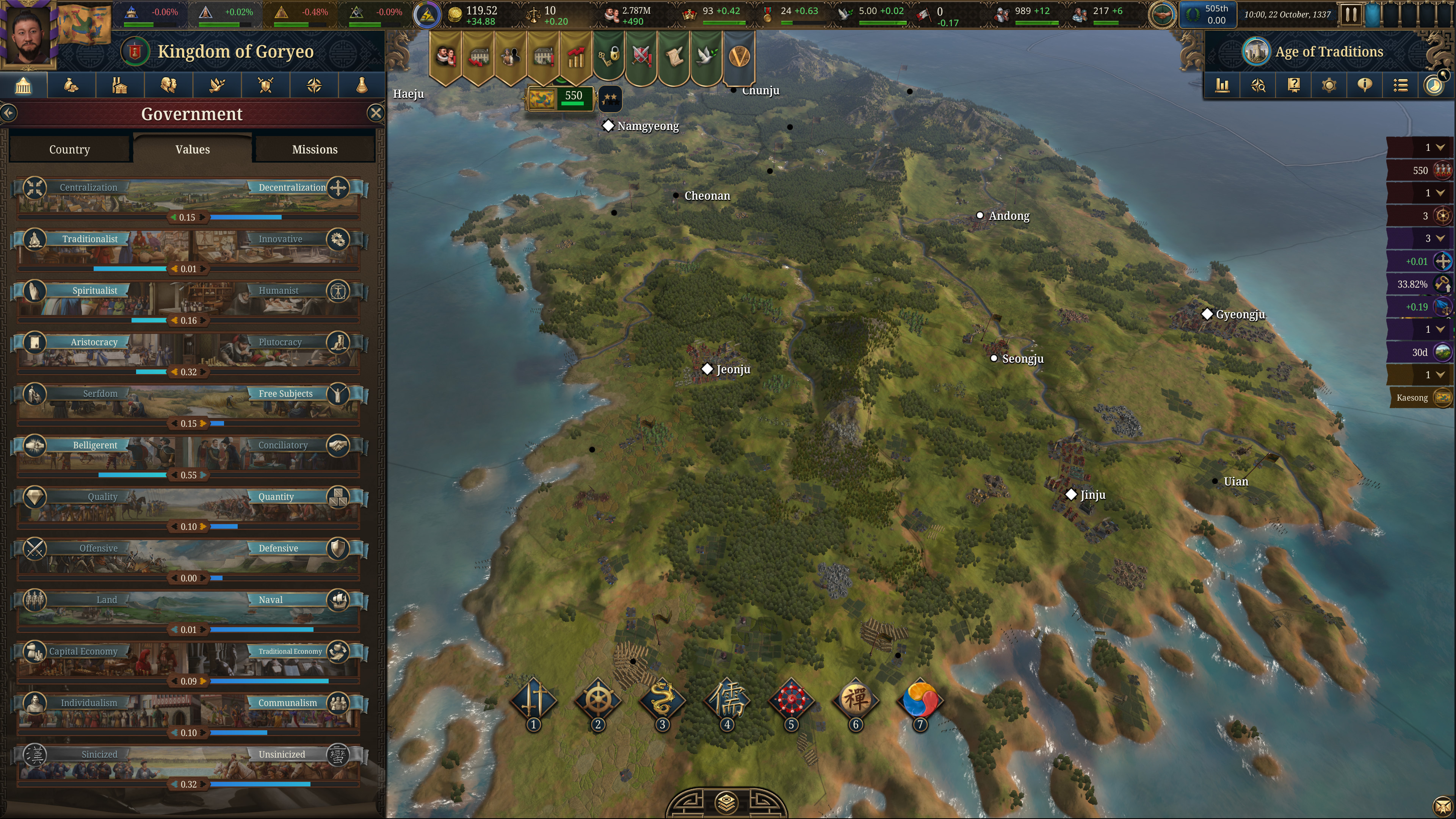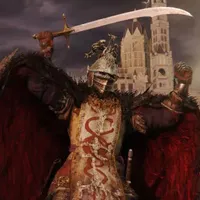25 years of making history: Europa Universalis lead Johan Andersson talks grey hair, running out of ideas for DLC, and only hiring a menus guy after 3 games
A quarter century? Barely enough time to develop Reformed Eastern Hussars.
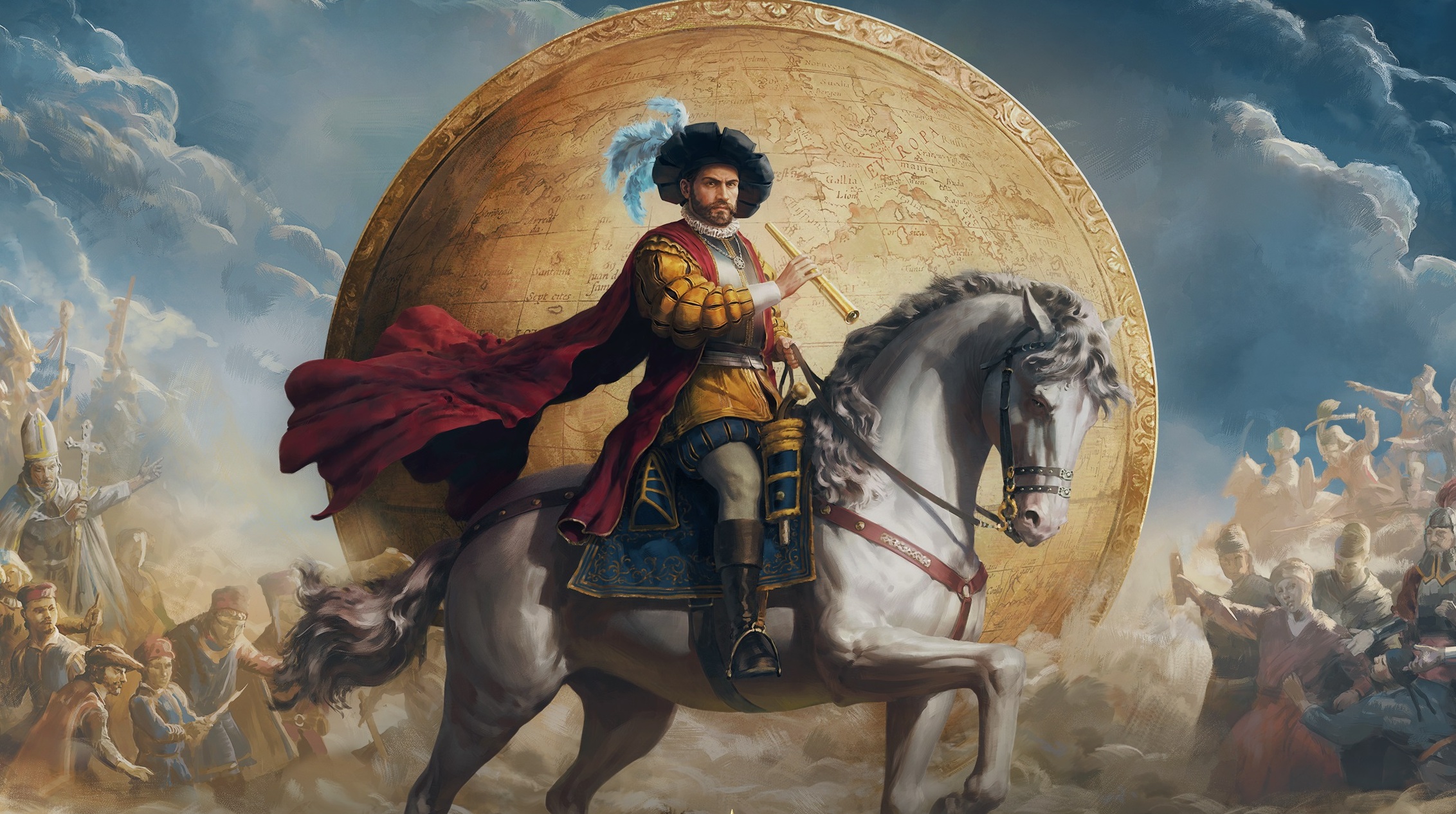
Johan Andersson is preparing for a game launch. He's done it before. The director on the imminent Europa Universalis 5 and studio lead at Paradox Tinto has been making history for more than a quarter of a century; if you've played one of the studio's sprawling strategy sims, he's almost certainly touched it. Odds are he directed it. Since starting at Paradox in 1998, his life has been one slice of history after another.
"The first thing when you say [it's been over 25 years] is, like, 'Holy shit! It's been that long?'" Andersson tells me over video chat. "But then again, I look at the screen here and realise, 'Okay, I have grey hair now, and I didn't have that when I started.'"
Now 51 years old, Andersson was a bright-eyed 20-something when he started work on his first Paradox game, Europa Universalis 1. "It's kind of interesting to have been able to be there from when we were basically a few people, just coding on something that was completely different than today's hardware, doing something that in today's world is very, very simple.
"Take it to today, 25 years later, [it's] much more advanced, much different." Gone are the 50-pound monitors, gone are the limited pools of playable countries. Gone, even, are most memories of the fact that Europa Universalis as a series was originally based on a board game of the same name.
Ancient history
Did Andersson foresee the series having this kind of longevity when he sat down to work on the first game over a quarter of a century ago? Absolutely not. But to be fair, he was too vibrant and youthful to be foreseeing much of anything. "I did not see 25 years in the future—how many young people in their early 20s think that far ahead?
"We didn't have, like, vision boards. We didn't use those things. We didn't look that far in advance. We were young, and this was among the first games we had been doing. I mean, for most people that had been working on it, this was their first game, and before I was doing [EU1], I had only done, like, console games and action games… We just wanted to make a real-time historical strategy game that we could play and enjoy. And so would you."
So you can't blame Andersson for not immediately clocking Europa Universalis as a series that would follow him for decades. At the time, the company was not even called Paradox, and it existed as a subsidiary of the now-bankrupt, then-going-through-bankruptcy Target Games. "This was one of our first games we started doing there. It was basically a board game that had gotten licensed—a very complex, super complex board game that was very intriguing."
Keep up to date with the most important stories and the best deals, as picked by the PC Gamer team.
"I did not see 25 years in the future—how many young people in their early 20s think that far ahead?"
Johan Andersson
A videogame based on a hyper-complicated French board game about the tournament of shadows between early-modern great powers does not, as a pitch, scream 'blockbuster success,' but Andersson was itching to work on it anyway. "I grew up playing Civilization, I grew up playing all these old-style board games, so for me this was kind of like my dream game to get back to Sweden and work on."
Despite its humble origins, the first Europa Universalis ended up determining the shape Paradox's strategy games would adopt for decades to come. Despite being a Civ fan, Andersson asked himself, "'Why should we have turn-based [games]?'" when he sat down to make EU1. "Turn-based is due to the limitations of playing a board game. A computer can very much be playing out stuff in real-time."
There was Civ inspiration in there, sure, "but I also played a lot of RTS in the mid-'90s: way too much Warcraft 1 and 2, Command and Conquer… It was interesting to combine the concept of real-time, deeper strategy with long-term play.
"A bit RTS, I would say a bit board game. We looked at a lot of Civilization. I mean, mix all those three together and you get Europa Universalis, which was basically the origin of Paradox games."
The Great Slump
While a young Andersson and co were chipping away at EU1, their parent company was busy collapsing. In 1999, Target Games declared bankruptcy, beginning the process that would spin Paradox off into its own separate, videogame-focused company.
It would have been quite good—moreso than usual, even—for the-organisation-that-would-be-Paradox to sell a lot of videogames, but the plates you had to spin to shift discs in the era of physical retailers were even stranger and wobblier than now.
"Back before Steam, before 2010, you basically had to print copies of games. To be able to print, you need to pay in advance, and then you get paid far, far afterwards. Sometimes some distributors don't pay even when they're supposed to pay! Sometimes you don't sell the amount of copies you expected to.
"And we did not sell huge numbers in those days. It was a very small number. So, like, if you're not paid for a print run of 2,000 copies—which was a lot—you were basically like, 'Okay, who's not getting a salary this month?'
"So there were constant challenges back in the day of running a small company with small volumes—lots of money tied up in things outside our control."
EU1 launched in 2000, and EU2 followed—unfathomably, in our modern era of decade-plus game lifespans—in 2001. "We came up with a bunch of ideas for what we should be doing. I think we, in two or three meetings, wrote down… like, three pages of ideas, and [the mood was] 'Okay, we need to get this game out quickly, and it needs to be done so it's sold in the US market before Christmas, because we need the money [or] else we cannot pay people.
"I was young… didn't have any kids or anything like that. And I had a deal with the CEO we had before Fred [Wester] that was like, 'Yeah, every time you work past 9 pm, you can take a taxi home. So I never went home before nine o'clock on a single work night, ever. Not before 2005."
Even in those constrained conditions and with a breakneck (by modern standards) turnaround, Andersson and co. were making decisions that would have lasting impact on Paradox and its games. "Originally, in EU1, you could only play, like, the eight countries that were set up in each scenario… People found out, and they made this mod that let you play as any country. So in EU2, we made this system so you can play any country."
The modder who had opened up EU1 was Henrik Fåhraeus. "I hired him for EU2 as a content designer," says Andersson. "He's currently the chief creative officer for Paradox, and is running the company in Stockholm. So that's a good hire!"
The march of time
Having released two Europa Universalis games in a span of two years, Paradox did not turn around and immediately begin work on EU3. Instead, the studio went to all the other periods of history it could think of. "We had this idea that we should make a game for every time period that we know about," recalls Andersson. "Like World War Two; we did the medieval Crusader Kings; [and] Vicky 1. We also had ideas for prehistoric and Roman, and there were a lot of other things.
"But there was always this little bit of pressure to make a sequel [to EU2] eventually."
Europa Universalis 3 arrived (a luxurious) six years after the release of EU2, in 2007. By this point, Paradox and Andersson had a long portfolio of grand strategy games under their belts, but it was this game, in his recollection, that turned it from a general game studio into a grand strategy developer.
"Back then [the early 2000s], we were doing multiple games at the same time. Like, we were doing a Baldur's Gate [style] game that did not turn out great. We had like three separate teams doing it… If you want to laugh, Google 'Valhalla Chronicles'—we had the best comment ever on that one: 'Bugs, many and diverse, some more interesting than the gameplay.'"
It was EU3 that marked the transition from that era to Paradox-as-a-grand-strategy-maker. "It was not EU1 that made it into a grand strategy studio, I think it was EU3, which was probably, like, the 12th GSG [grand strategy game] we made."
EU3 was an undertaking. "We had created a new engine, a 3D engine, and we had made a licensed game… Diplomacy." Paradox's work on Diplomacy, which released in 2005, was adapted into the new 3D engine.
Making an engine was not the same as making a game. "It was a bit challenging, because while I've done some 3D work, it was like 'fake' 3D work back in the old, early console days before 3D cards and 3D graphics. So we did not really have that much experience… If you have seen the first EU3 screenshots—before the expansions—it did not look good. It looked blocky. It didn't look great at the time, and it has not aged well, let's put it that way."
Nevertheless, on this rock Paradox built its church: EU3's new engine made it easier to add expansions—green shoots of the DLC-focused approach that defines Paradox games to this day—and their development took place with one eye on the community. "We basically had someone draw the short stick, and they had to gather all the suggestions that had been posted in the last six months, or whatever, and print them out.
"If you don't listen to your community, if you ignore their concerns before release, you'll release Imperator."
Johan Andersson
"Then, when we designed something, we went through and picked as many suggestions as we thought were good. So a lot of the expansions, not just for EU but all the others at that time, they were: 'What does the community want?' Take some stuff that fits thematically and make an expansion on that. Then again, that's basically how we've been operating ever since, at least when I'm running it: I pick a theme and then go through what the community wants that's related to that theme.
"If you don't listen to your community, if you ignore their concerns before release, you'll release Imperator."
The Concert of Europe
If EU3 marked Paradox fully becoming a 'grand strategy developer', EU4 marks the series fully adopting the complete 'Paradox shape' we recognise today: a sprawling base game built up over years and years by DLC after DLC.
It was also the first EU game to release after Crusader Kings 2 introduced a lot of relative normies to the joys of historical simulation, and the first one—for many of them—to seem even vaguely parseable. "This was the first time we had a UX designer hired at the company ever," recalls Andersson. "We actually did iterations upon interfaces, instead of just 'the first [thing] we made was the thing we used.'"
EU4 was a long way away from those first blocky screenshots of EU3 running in its homemade engine, too. "This was the first time we actually had map graphics that [were like] 'Oh! This looks really good'—it was competitive, graphically, compared to other games in the same genre."
But the goal was not just to look pretty. "We wanted to take EU4 to the next level, so we put up a vision of: it should be 25% better interface, 25% better multiplayer, 25% better graphics, 25% improved gameplay. That was the entire vision." Andersson and his team doubled down on mechanics to differentiate the game's various countries in play, ginned up a lot of historical events that could trigger and alter a game, and created a new trade system.
But EU4 also had to fit into the then-new Paradox DLC model. "It was mostly about getting a polished game to take us to the next level, and also create a platform for the new business model we had for making DLCs that we could sell as optional, and you could still update the old game."
That drumbeat of DLC for EU4 has had its ups and downs over the years. Some were mostly well-liked (Art of War, Rights of Man) and some were disastrous (Leviathan). If you ever want to attract a lot of comments on a forum thread or Reddit post, just ask people what they think of Paradox's approach to DLC, not just on Europa Universalis, but across all its games.
But for Andersson, that approach was right for EU4 and right for Paradox. "I would say it's been pretty fucking great," he says. "When we started with that system, we were a studio of 12 people, I think—that's CK2."
Now? "I have no idea how big PDX Studio Stockholm is… I don't know if we're 300, 400, 500—I have no idea about Stockholm these days. We have multiple pipelines and are keeping games alive, so I would say it's a pretty great system, at least if you're looking at success."
Which is not to say Andersson thinks the system is beyond reproach. On the one hand, it gives devs a lot of power: "You, as a game director, can have complete control over when you want to release stuff. You decide what's going in, you decide scope, you decide exactly when you can release and what should be released." Sounds great, but when your game has been out for years, ideas can sometimes run dry.
"After you've been doing them for a while, you run out of ideas: 'We promised to make a naval-focused one, but we can't come up with great tech, we can't come up with great design for the ideas.
"And then you end up with Mare Nostrum. I mean, if you Google and check that one out, you're gonna see: nobody hates it, nobody likes it. It's just like, boring, mid! That's what happened after a while." More personally, it was around the release of Mare Nostrum that Andersson stepped back from hands-on development of EU4, "because I was running out of ideas for a while."
DLC teething pains or no, Andersson regards EU4 as a feather in the studio's cap. "We had great reviews, sales numbers were great. It was like, everything was good! People loved it: it was playable, bug-free, polished—it was all you could dream about."
New Europe
A quarter century of Europa Universalises (Europas Universalis?) later, and EU5 is right around the corner. When Andersson sat down at a desk to get to work on EU1 all those years ago, he wasn't thinking ahead. But back then, the turnaround between that game and its sequel was a single year. EU2 to EU3? Six years. It's been 12 years between EU4's release and EU5, and an older, wiser Andersson is more reflective than he was in the '90s.
"I honestly don't know. If [another game] is 12 years from now, I'm not sure I'm around working as a creative lead. I mean, I'm going to be in my 60s. I'm not entirely sure I want to be that if it's 12 years.
"I don't think it's gonna be shorter. I think that EU5 can be a good, long-term platform for how we want to do [things]... There's a lot of countries in the world, a lot of history, that we can create content around, and have a supportive framework for many years."
Early on in our chat, Andersson said that his goal across his whole career has been, "I want to create believable worlds, that's my philosophy. The more games I've created, the more entrenched I've become into that… I want systems to all fit together, interact with each other, so it feels like—when you're playing, you're not thinking that you're playing a board game, or playing a game, [but] that you're actually in the world, as much as it can be while playing a strategy game on a computer."
So is Europa Universalis 5 the most believable world yet? You can probably guess his answer.
"Hell yes. The most in-depth. Everything is running around it being a believable world with a population and everything all playing together. And I'm really proud of that simulation system." After all, he has been iterating on it for 25 years.
Best MMOs: Most massive
Best strategy games: Number crunching
Best open world games: Unlimited exploration
Best survival games: Live craft love
Best horror games: Fight or flight

One of Josh's first memories is of playing Quake 2 on the family computer when he was much too young to be doing that, and he's been irreparably game-brained ever since. His writing has been featured in Vice, Fanbyte, and the Financial Times. He'll play pretty much anything, and has written far too much on everything from visual novels to Assassin's Creed. His most profound loves are for CRPGs, immersive sims, and any game whose ambition outstrips its budget. He thinks you're all far too mean about Deus Ex: Invisible War.
You must confirm your public display name before commenting
Please logout and then login again, you will then be prompted to enter your display name.
